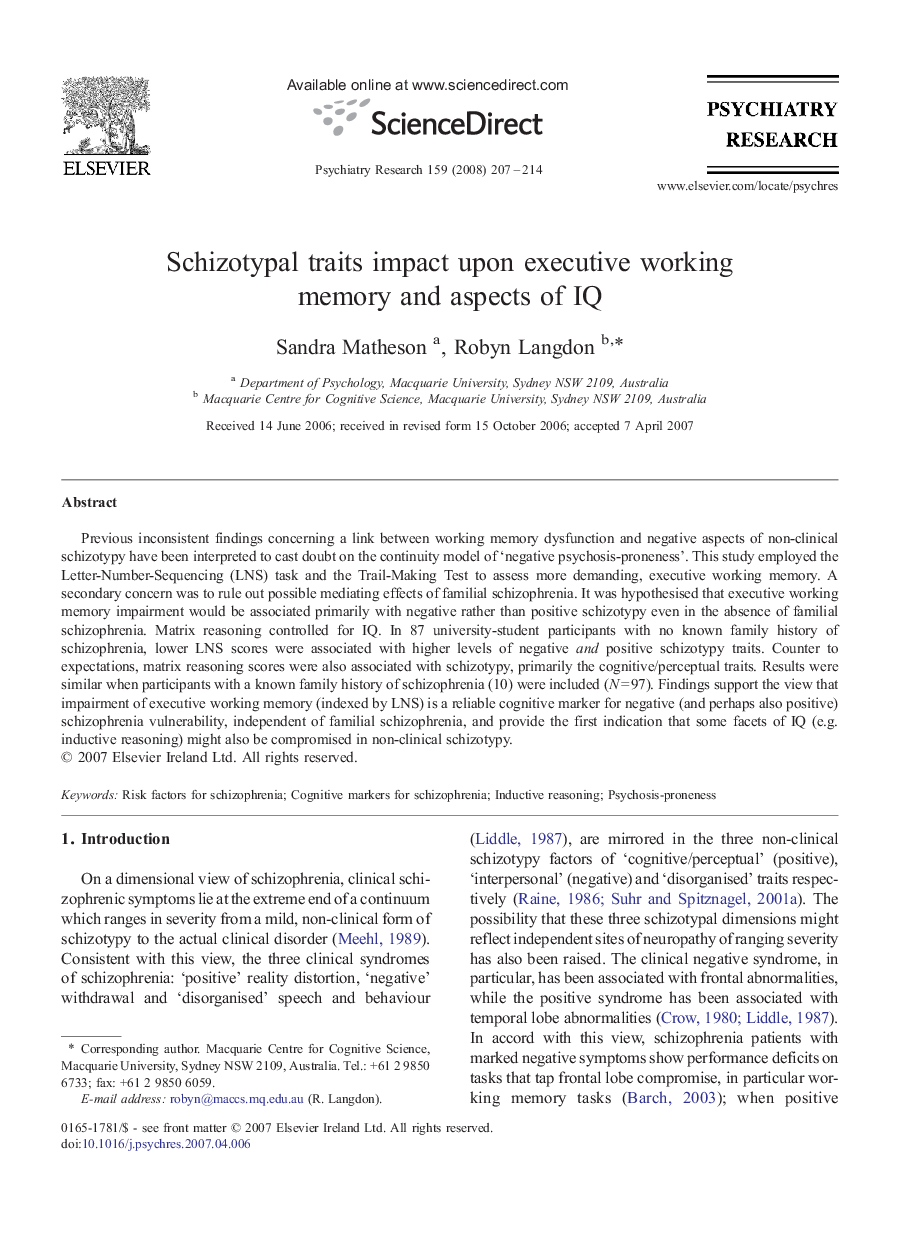| Article ID | Journal | Published Year | Pages | File Type |
|---|---|---|---|---|
| 334053 | Psychiatry Research | 2008 | 8 Pages |
Previous inconsistent findings concerning a link between working memory dysfunction and negative aspects of non-clinical schizotypy have been interpreted to cast doubt on the continuity model of ‘negative psychosis-proneness’. This study employed the Letter-Number-Sequencing (LNS) task and the Trail-Making Test to assess more demanding, executive working memory. A secondary concern was to rule out possible mediating effects of familial schizophrenia. It was hypothesised that executive working memory impairment would be associated primarily with negative rather than positive schizotypy even in the absence of familial schizophrenia. Matrix reasoning controlled for IQ. In 87 university-student participants with no known family history of schizophrenia, lower LNS scores were associated with higher levels of negative and positive schizotypy traits. Counter to expectations, matrix reasoning scores were also associated with schizotypy, primarily the cognitive/perceptual traits. Results were similar when participants with a known family history of schizophrenia (10) were included (N = 97). Findings support the view that impairment of executive working memory (indexed by LNS) is a reliable cognitive marker for negative (and perhaps also positive) schizophrenia vulnerability, independent of familial schizophrenia, and provide the first indication that some facets of IQ (e.g. inductive reasoning) might also be compromised in non-clinical schizotypy.
